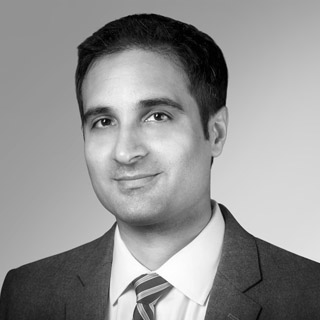Dr. Rahul Sheth is an Associate Professor in the Department of Interventional Radiology at MD Anderson. Rahul received his undergraduate degree in Chemistry and Physics at Harvard University and his MD degree through the Health Sciences and Technology program at Harvard Medical School. After a medicine internship at the University of Pittsburgh, Rahul returned to Boston and completed his residency training in diagnostic radiology as well as fellowship training in Interventional Radiology at Massachusetts General Hospital.
As a clinician-scientist, Rahul studies how locoregional therapies can have positive systemic ramifications for cancer patients. His research interests include optical molecular imaging, tumor microenvironmental factors affecting minimally invasive cancer therapies, photothermal ablation and cancer immunology.
